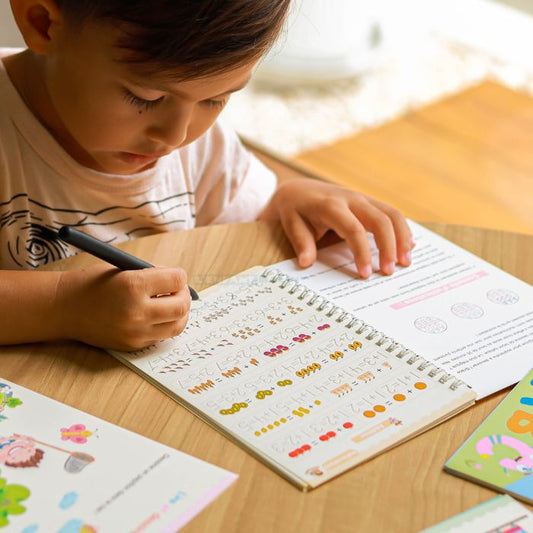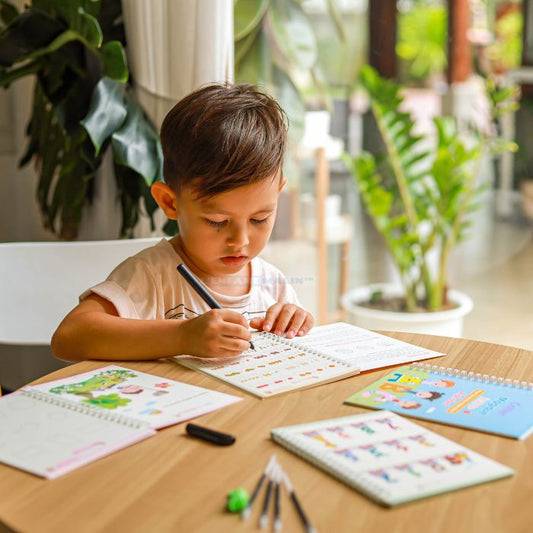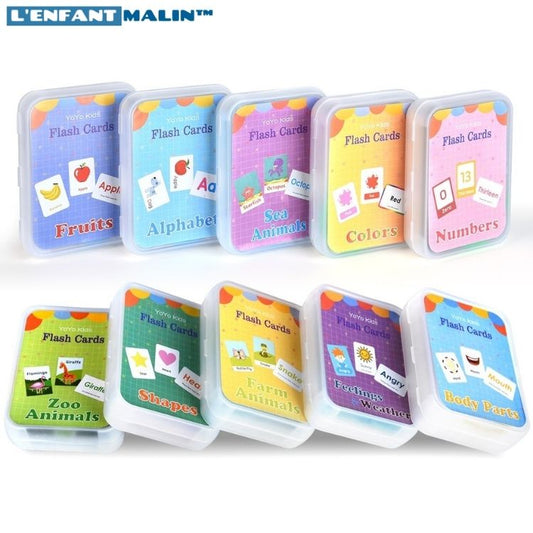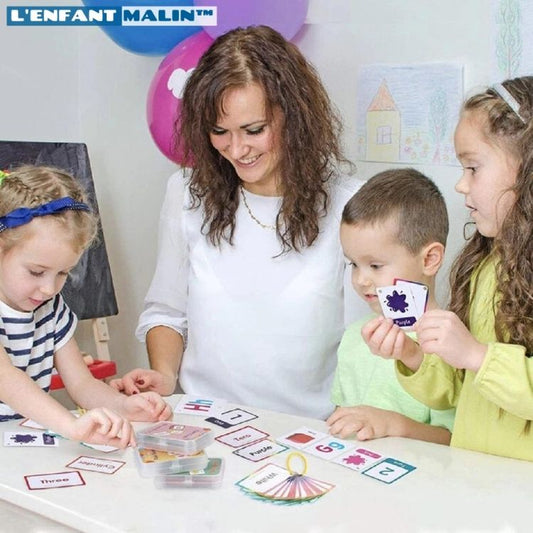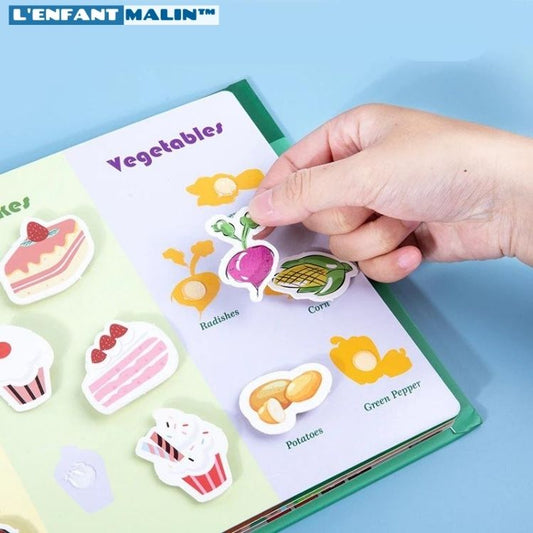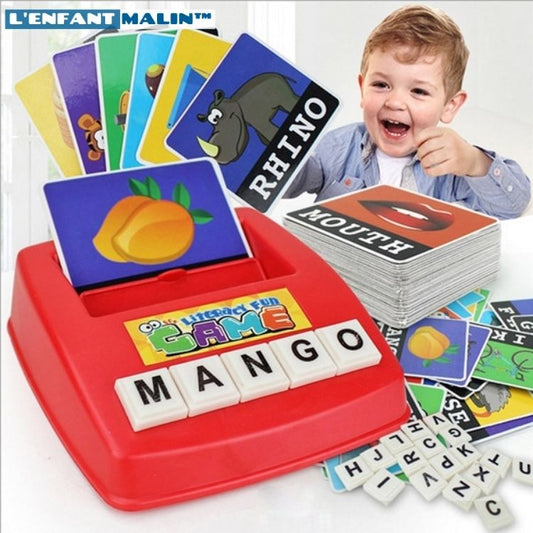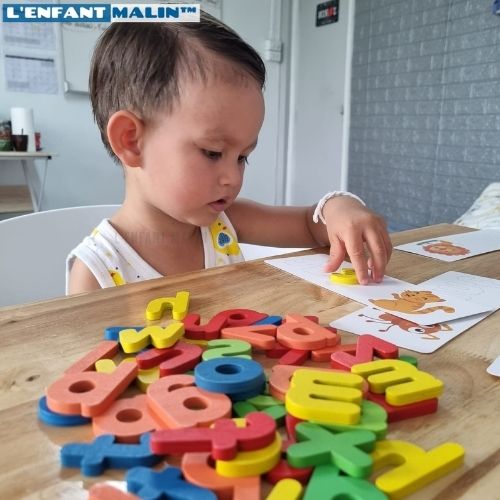At L'Enfant Malin, we pay particular attention to learning foreign languages and in particular English. For what ? Well, because it’s an opportunity for your child to engage with the world in a more immediate and meaningful way.
CONNECT YOUR CHILD TO THE WORLD!
One of the most rewarding aspects of the human experience is our ability to connect with others. Being able to communicate with someone in their language is an incredible gift. Bilinguals have the unique opportunity to communicate with a greater number of people in their personal and professional lives. So provide your children with the skills and level of English necessary for their future understanding of the world!
FEED HIS BRAIN
The many cognitive benefits of language learning are undeniable. People who speak more than one language improve their memory, problem-solving and critical thinking skills, concentration, ability to multitask, and listening skills. As if that wasn't enough, as you age, being bilingual or multilingual also helps toprevent mental aging and cognitive decline. This learning of English can be done outside of books, for example with educational games (see our products) or even online courses. There are no ages or levels to start if your child has the right resources.
DEVELOP YOUR LINK WITH OTHER CULTURES
Language is the most direct link with other cultures. Being able to communicate in another language makes us discover and appreciate the traditions, religions, arts and history of the people associated with that language. Greater understanding in turn promotes greater tolerance, greater empathy and greater acceptance of others.
SEE THE WORLD
Traveling while knowing the local language can revolutionize a trip abroad. While monolingual travelers visit the same places, travelers who know more than one language are more easily able to navigate outside of the tourist bubble. But also connect and interact with the place and its people in a way that is often inaccessible to those who don't speak the language.
There are of course other benefits to learning languages such as reinforcing your child's self-confidence or even obtaining new vocabulary. However, we are aware that it is far from easy for both the child and the parents.
SO HOW TO DO IT?
The current school, whether from kindergarten or even later, does not necessarily promote the initiation and development of foreign languages, particularly English. The books and courses given in education prove to be ineffective and do not allow our children to have a correct level even over the years! Other resources and methods are therefore necessary for our children whatever their age.
-
Encourage regular practice: Make sure your child practices English regularly. This may include reading books in English, listening to songs or podcasts in English, watching films or series in English, or even participating in online activities that promote language learning. Our MiniBook™ is so fun that your child will not hesitate to open it every day!
-
Create an English-speaking environment: Encourage the use of English at home by creating an environment conducive to learning the language. You can post English words or phrases on the walls, play board games in English, or encourage English conversations during meals or relaxing family times.
-
Use age-appropriate resources: Choose books, apps, videos and games that match your child's age and interests. Resources tailored to their level of English will help them develop their language skills in a fun and engaging way. For suitable vocabulary, we recommend PocketVocab™ flashcards.
-
Practice listening and pronunciation: Regular listening to English is essential to improve listening comprehension. Encourage your child to listen to audio recordings or watch videos in English. You can also work on pronunciation by repeating words and phrases after native speakers or using apps or games that focus on pronunciation. Discover the Speak-Easy™ for the best pronunciation!
-
Encourage interactions in English: If possible, expose your child to situations where he can interact with native English speakers. This can be done through language camps, language courses, exchanges with English-speaking host families or even by participating in international community activities.
-
Show patience and encouragement:Learning a language takes time, so it is important to show patience and encouragement to your child. Praise his progress, encourage him to practice regularly, and don't discourage him if he makes mistakes. The important thing is to create a positive environment that encourages learning.
This is why our store offers simple and effective solutions for all ages and levels with the aim of learning in a fun way.

